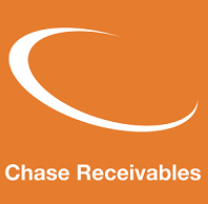NEW YORK, NY / ACCESSWIRE / May 28, 2019 / Chase Receivables ("CR") secured summary dismissal of a federal class-action lawsuit which challenged an initial debt collection notice under section 1692g of the FDCPA. See Poplin v. Chase Receivables, Inc., Civil No. 18-404 (D.N.J.). Although the notice's validation language tracked the FDCPA, the Court denied CR's initial motion to dismiss by concluding that the language was potentially confusing to the least sophisticated consumer. Rather than attempt to settle the case, CR moved both to certify that denial for immediate appeal and for summary judgment, while opposing the plaintiff's motions to certify the proposed class and to file an amended complaint. CR's persistence paid off last week when the Court granted its summary judgment motion by reconsidering its prior decision and concluding that the notice's validation language is "clear and effective," and therefore did not violate section 1692g as a matter of law.
CR's victory should significantly benefit the debt collection industry, which has been inundated with similar lawsuits brought by plaintiffs' attorneys contending that such notices are actionable because they allegedly fail to clearly convey to consumers that disputes must be submitted in writing. Federal court decisions in such lawsuits have yielded mixed results, thereby frustrating debt collectors by exposing them to litigation expense and potential liability for notices which comply with section 1692g. Notably, the favorable ruling obtained by CR was issued a week after the CFPB proposed a model notice which would provide a safe harbor against litigation.
CR wishes to thank its outside counsel, Sessions Fishman Nathan & Israel, and the Association of Credit and Collection Professionals (ACA International) for their expertise and support in achieving this successful result and important precedent.
Media Contact Information
Erin Walker
ewalker@brandyourself.com
1-(646) 578-8484 (Ext: 925)
Chase Receivables is not affiliated, associated, endorsed by, or in any way officially connected with JPMorgan Chase Bank, N.A. or any of its affiliates including, without limitation, Chase Bank.

SOURCE: Chase Receivables
View source version on accesswire.com:
https://www.accesswire.com/546822/Chase-Receivables-Wins-Summary-Dismissal-of-Class-Action-Lawsuit
